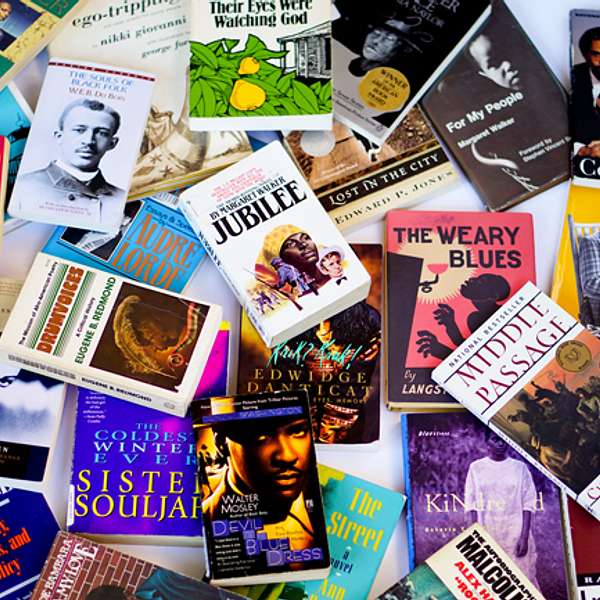
Remarkable Receptions
A podcast about popular and critical responses to African American novels, artistic productions, and more.
Remarkable Receptions
African American Literature Survey Courses -- ep. by Elizabeth Cali and Howard Rambsy II
A short take on surveys of African American literature.
Written by Elizabeth Cali and Howard Rambsy II
Read by Kassandra Timm.
Since the 1980s, English departments have regularly offered classes focusing on surveys of African American literature. These survey courses are designed to give students a brief overview of the history of major black writers, literary works, topics, and events.
Many professors for survey courses assign poems, short stories, and excerpts from longer compositions that appear in African American literature anthologies. In some cases though, professors assign novels, and some novels, because of their popular and critical importance, are assigned much more than others.
You’re listening to Remarkable Receptions—a podcast about popular and critical responses to African American novels.
Frances Harper’s 1892 novel Iola Leroy, James Weldon Johnson’s 1912 novel The Autobiography of an Ex-Colored Man, and Pauline Hopkins’s 1903 Of One Blood are often assigned when educators want students to consider late 19th century and early 20th century narratives.
African American literature courses invariably cover the Harlem Renaissance of the 1920s. Accordingly, professors often assign Jean Toomer’s Cane from 1923 and Nella Larsen’s Passing from 1929.
Zora Neale Hurston’s Their Eyes Were Watching God, published in 1937, is one of the most frequently assigned novels. Hurston’s book prompts discussions about black women’s writing, representations of African American vernacular speech, and the relationship between memory, identity, and freedom.
For decades now, Richard Wright’s Native Son has regularly appeared on syllabi for African American literature courses. First published in 1940, Wright’s book was a critical and popular success. Native Son set the tone for many urban-based novels that followed.
In 1952, Ralph Ellison published his award-winning novel Invisible Man. A National Book Award winner, the first by a black author, Ellison’s novel quickly became a cornerstone text in African American literary studies, so much so that a survey course in African American literature could hardly be taken seriously without at least that famous chapter depicting the Battle Royale from Invisible Man on the reading list.
Toni Morrison is widely viewed as the most critically acclaimed African American author. Although she published several novels, her books The Bluest Eye from 1970, Sula from 1973, Song of Solomon from 1977, and Beloved from 1987 are her most frequently assigned novels.
The critical reception of Morrison’s novel in 1987, prompted professors to regularly assign novels by Paule Marshall, Gloria Naylor, Gayle Jones, Toni Cade Bambara, Alice Walker, and other black women writers.
African American literature survey courses have much to tell us about Black creative works and the powerful role such courses play in shaping public knowledge about Black books. Survey courses remind us which African American novels are most widely taught, whose works endure across literary eras, and which novels younger generations of students will carry with them.
******************************
This episode was written by Elizabeth Cali and Howard Rambsy II.
******************************
This podcast, Remarkable Receptions, is part of the Black Literature Network, a joint project from African American literary studies at Southern Illinois University Edwardsville and the History of Black Writing at the University of Kansas. The project was made possible by the generous support of the Mellon Foundation. For more information, visit blacklitnetwork.org.